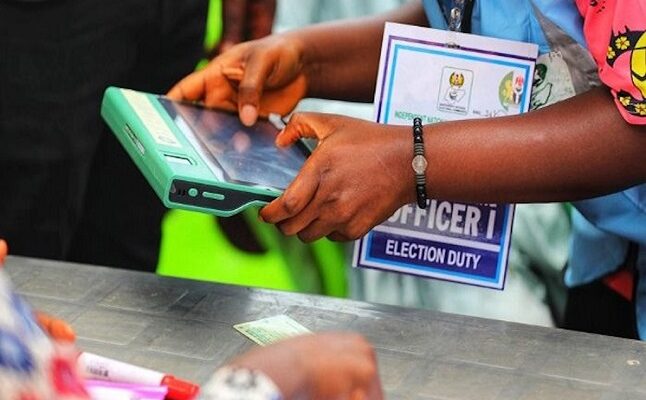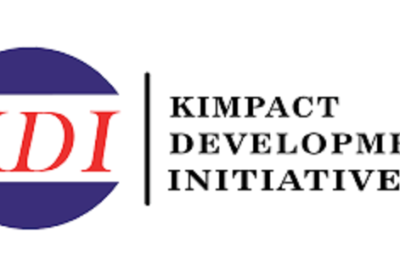By Daniel Adaji.
The just-concluded presidential election has raised a lot of dust, bordering on the failure of the Independent National Electoral Commission (INEC) to upload results from the Bimodal Voters Accreditation System (BVAS) to the INEC Result Viewing Portal (IReV).
Though INEC has declared the All Progressives Congress (APC) presidential candidate, Asiwaju Bola Tinubu, as president-elect, both the Peoples Democratic Party and the Labour Party, whose presidential candidates came second and third respectively, said they suspected foul play as INEC did not upload the presidential election results real-time from polling units to the IReV portal on February 25, 2023 when the election was conducted. The INEC had assured Nigerians that BVAS machines would be used to transmit results from polling units as soon as elections were concluded at across the country.
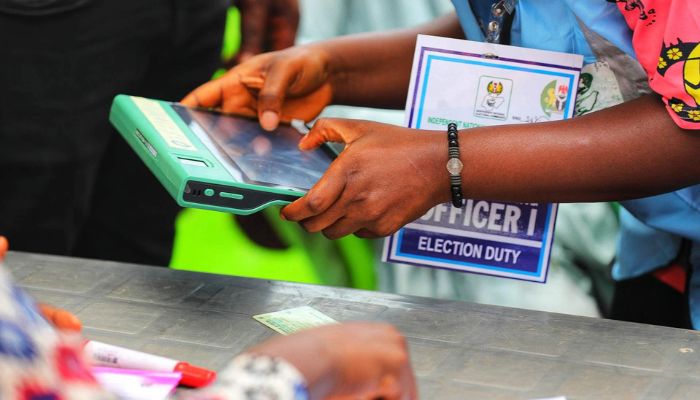
However, in the evening of the election day, the presidential election results were not upload, as INEC complained of technical hitches on the portal. What it meant by ‘technical hitches’ are yet to be clearly explained, but there were also reports that the portal suffered multiple cyber attacks on the day of the presidential election.
The INEC Chairman, Prof. Yakubu Mahmood, before the elections, was quoted as saying, “the IREV portal is a dedicated web portal for the public to view polling unit results as soon as they are finalized on election day. This has been employed in several elections conducted by the Commission in the past few years.”
In the evening of the election day, the presidential election results were not upload
Although, the portal was available and Nigerians viewed live results in the Senatorial and House of Representatives contest on the election day, those of the presidential results were not immediately uploaded. Now that the results are being uploaded on IReV portal some of the items found are, in the minimum incomplete, and at other points strange, showing that they differ from INEC results. Below are some of the discrepancies on the IREV portal as observed by The Insight..
Incomplete results from polling units
The results from some polling units were not completely uploaded on the portal. For instance in Abia State, Aba North with 12 wards had results from only four wards completely uploaded on the IREV as at the time the portal was viewed on Sunday, March 12, 2023.
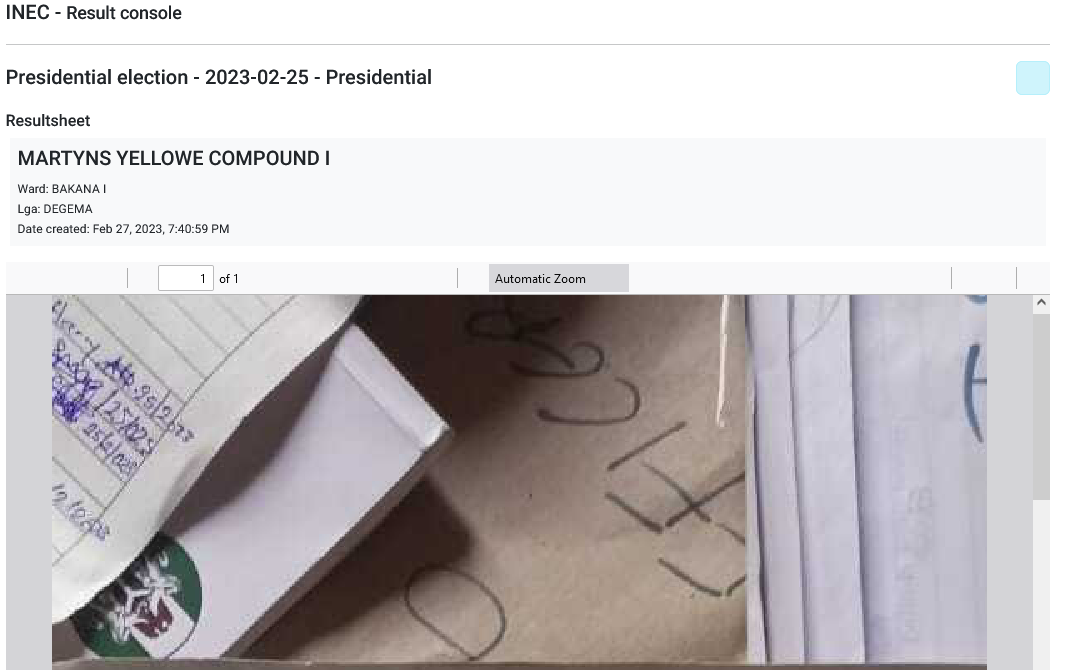
Another result from Bakana 1 ward in Rivers State uploaded on the portal was incomplete. The uploaded document only showed a part of the result sheet and other INEC materials rather than full result sheet. Other results from Rivers showed similar images.
Lack of clarity
Some of the results were not very legible. The result sheets were probably snapped in the dark, as the pictures were not clear enough for anyone to clearly see their contents. Others available on the system had multiple cancellations, with several figures over-written on previous ones.
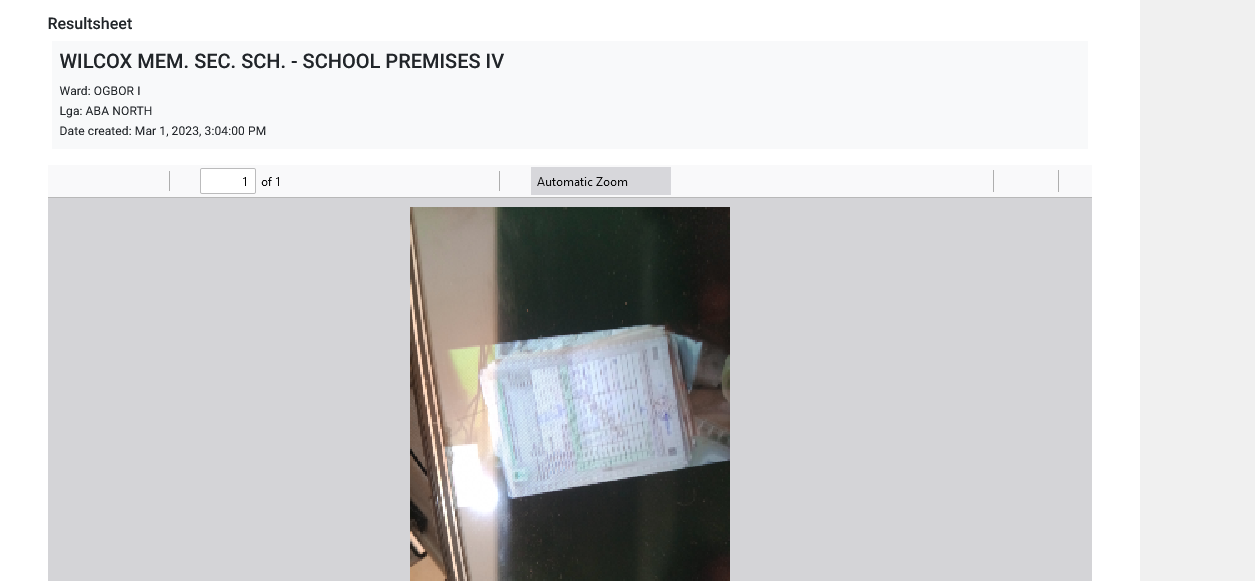
INEC officials uploaded pictures of human faces rather than results
It was expected that only duly signed results would be uploaded to the server. However, pictures suspected to be those of either INEC officials or voters were captured and uploaded to the portal but later replaced with an incomplete result few days later.
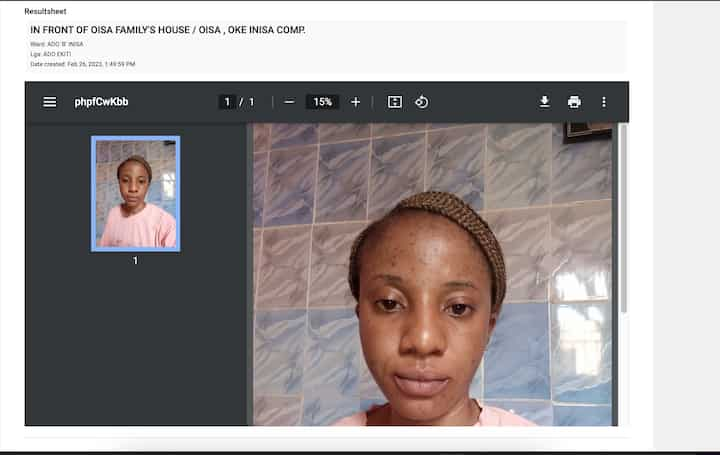
This implied that no results were actually uploaded from such polling units.
Lack of results from some wards
Also discovered was the fact that results were not uploaded from some wards. Example of such is Apani ward in Rivers State with 14 polling units and no result uploaded at all.
There were other wards in some states were polling units results were also not uploaded before declaration of the presidential election results by INEC.
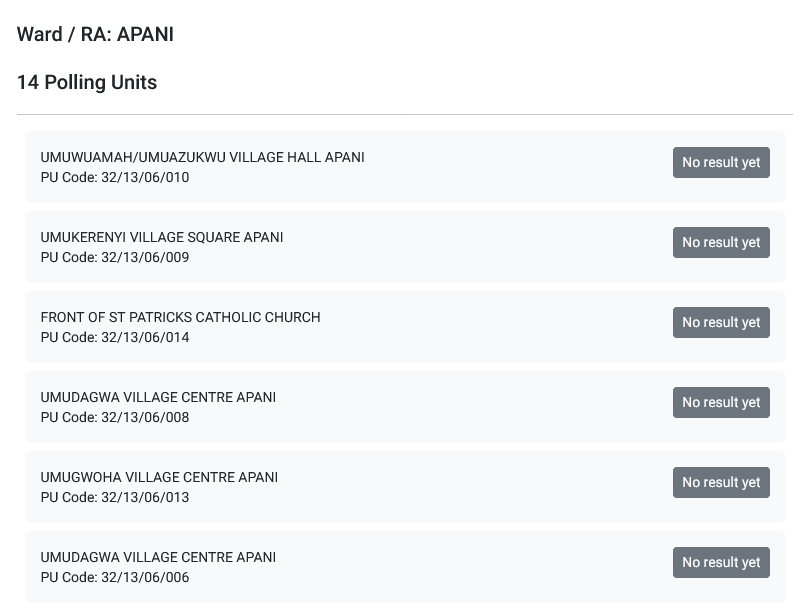
Results being uploaded much later after winners had been declared
The Insight found out also that some results were uploaded to the portal many days after the declaration of the president-elect by the election umpire. Such results were those from collation centres, instead of polling units.
Hand written notes were uploaded instead of result sheets
In one of the states, a hand written note “no result found” was uploaded instead of real results.
Based on the discoveries above, it becomes difficult to actually compute the number of votes for the presidential election results from many polling unit, based on e-transmission of results from BVAS to IReV.
There were several other technical problems in the process of conducting the election, and, perhaps, in the use of the electronic devices. While some presiding officers could not login to the BVAS machines, others who succeeded were only able to upload the Senate and Houses of Assembly results, while the presidential results were not uploaded at that time due to technical hitches claimed by INEC.
The BVAS system was adopted to eliminate voting by proxy
The Nigerian long-awaited 2023 general elections, which began with the presidential elections on 25 February 2023 was expected to be more credible as a result of the deployment of the BVAS, for the accreditation of registered voters, and electronic transmission of results as stipulated in the Electoral Act 2022. The technology was to forestall over-voting, one of the main shortcomings of previous elections in Nigeria.
The introduction of BVAS and electronic transmission of results by INEC had, herefore, raised the hope and trust of millions of Nigerians in this year’s electoral process.
Voters turned out in their millions, though the number was far less than the 93 million registered voters. Only barely 23 million out of 84 million who collected their permanent voter’s cards actually voted on February 25, 2023.
Voter apathy was not apparent. What was rather obvious was that if more voters had turned out for the elections, they would have overwhelmed INEC’s staff and infrastructure.
In many places, voting did not begin early, and voting had to stretch into the night, as thousands of voters had not perform their civic duties as at the 2.00pm deadline for completion of voting.
The BVAS technology is an artificial intelligence solution
Nigerians were optimistic that their votes would count this time.
The INEC Voters Enrollment Device (IVED), BVAS and IREV are three technological innovations that were to drive the 2023 general elections in Nigeria.
The technologies were deployed in Ekiti and Osun States to conduct governorship elections and it was reported to be hitch-free as at that time.
The BVAS system was adopted to eliminate voting by proxy. It is a device that is used for both voter accreditation and e-transmission of results for collation, with the double function of finger printing capturing and facial authentication. It is a replacement for the smart card reader used in the 2019 elections.
According to experts, the BVAS technology is an artificial intelligence solution.
First published on The Insight

